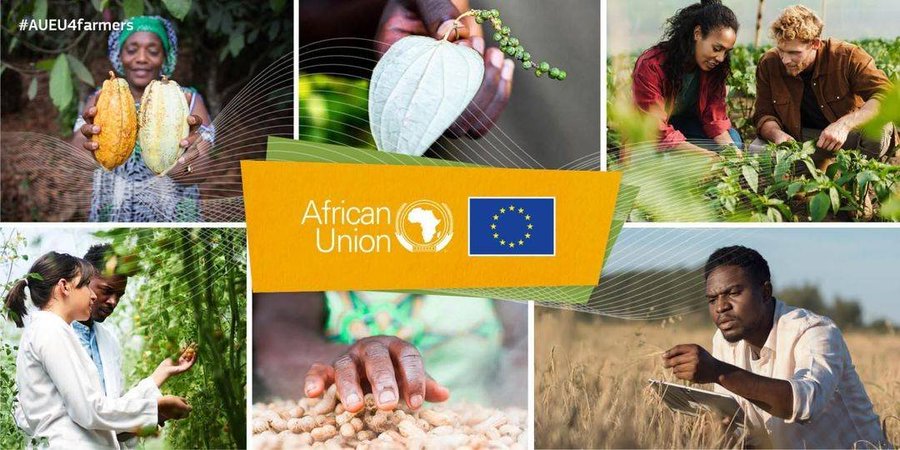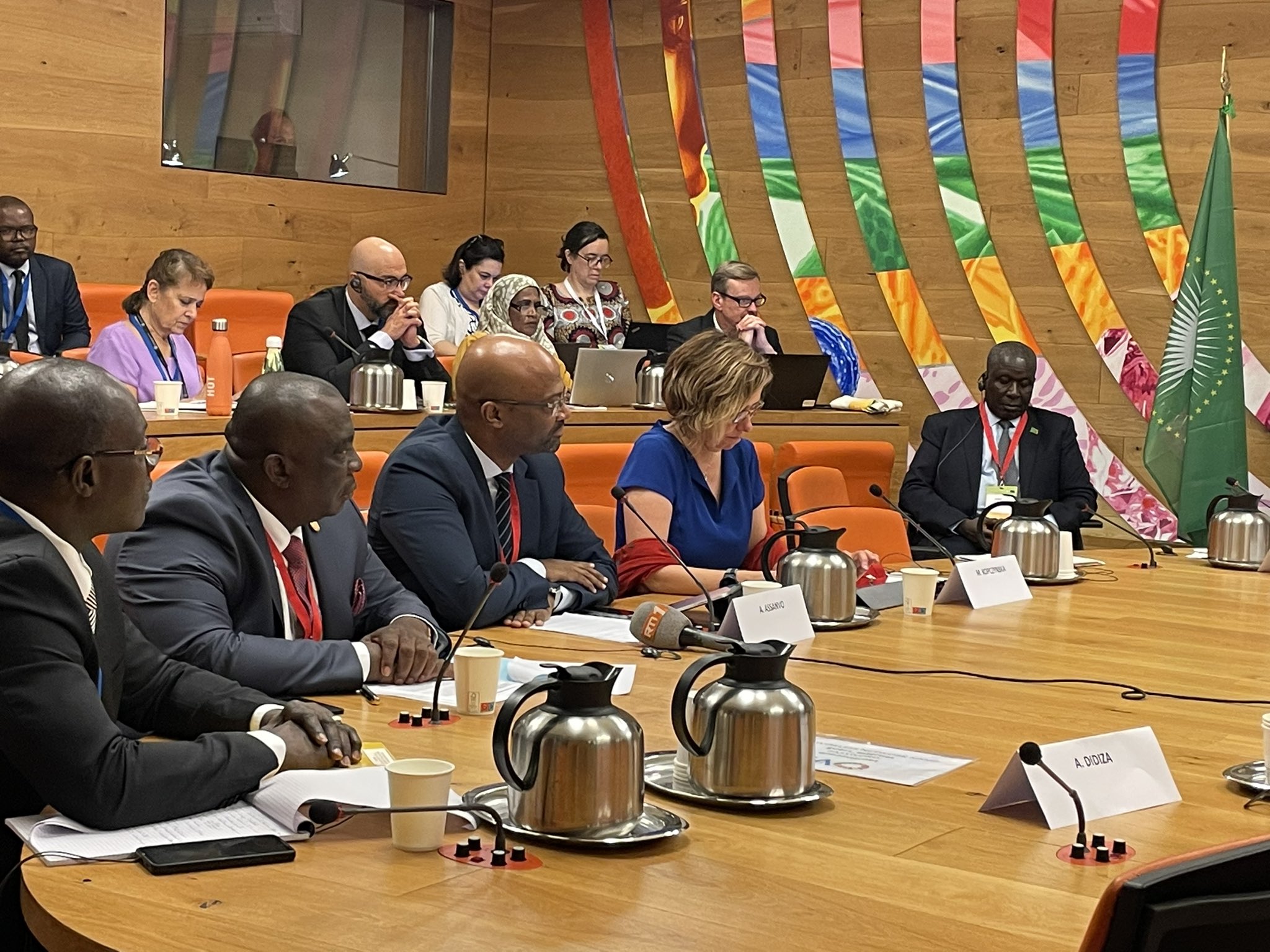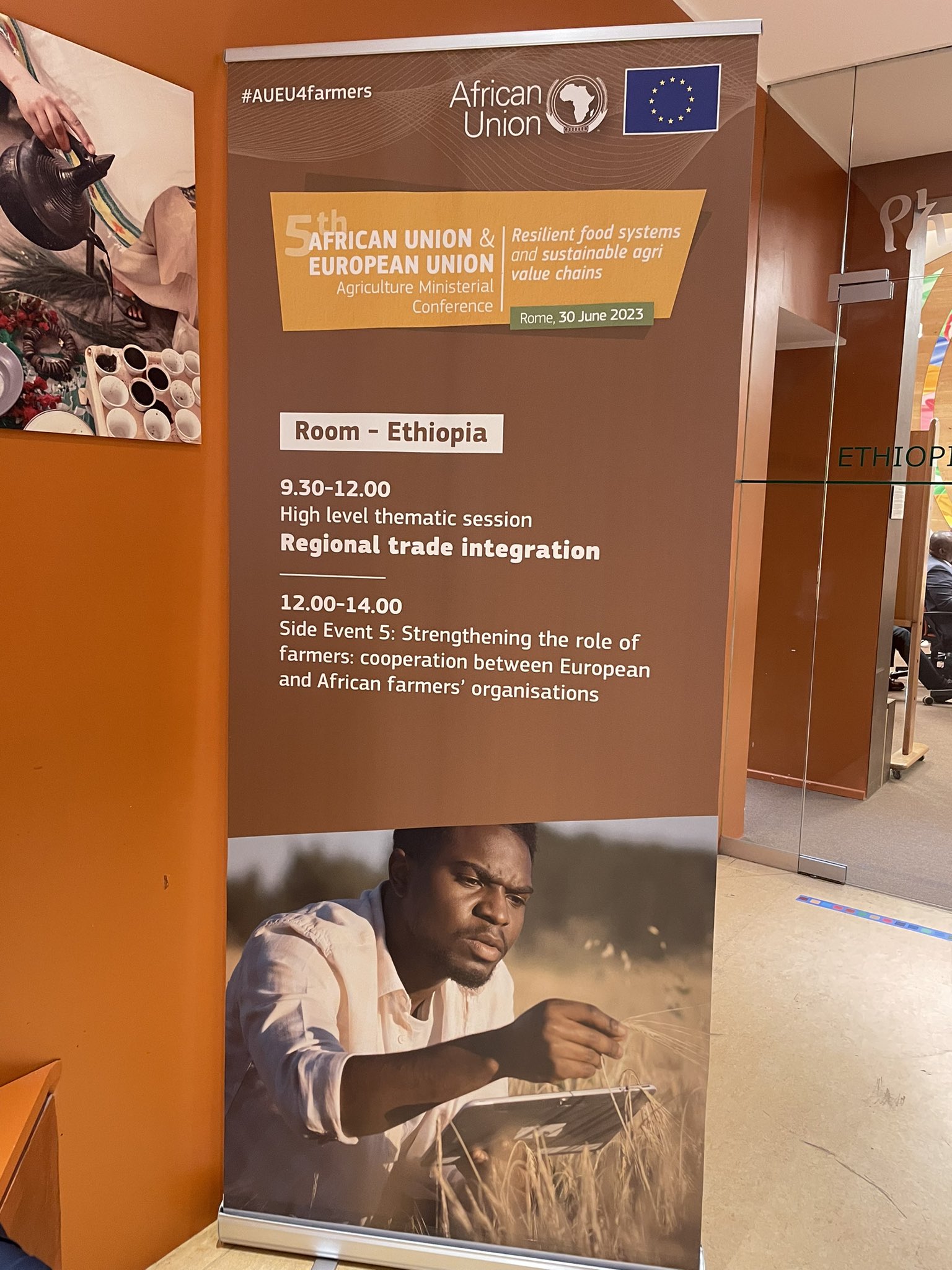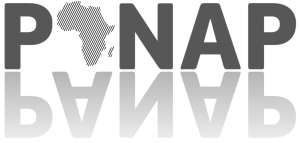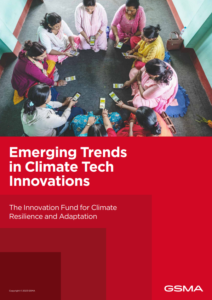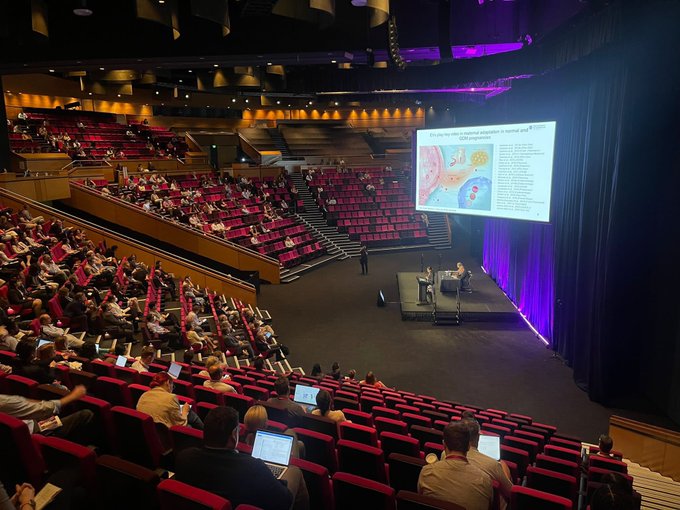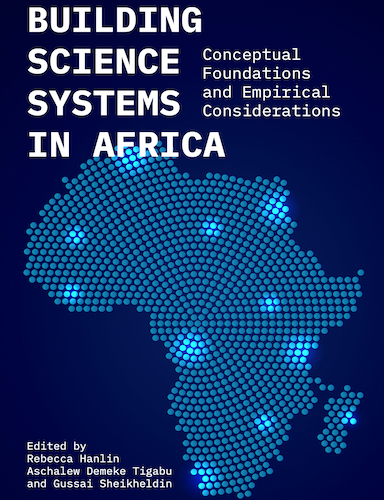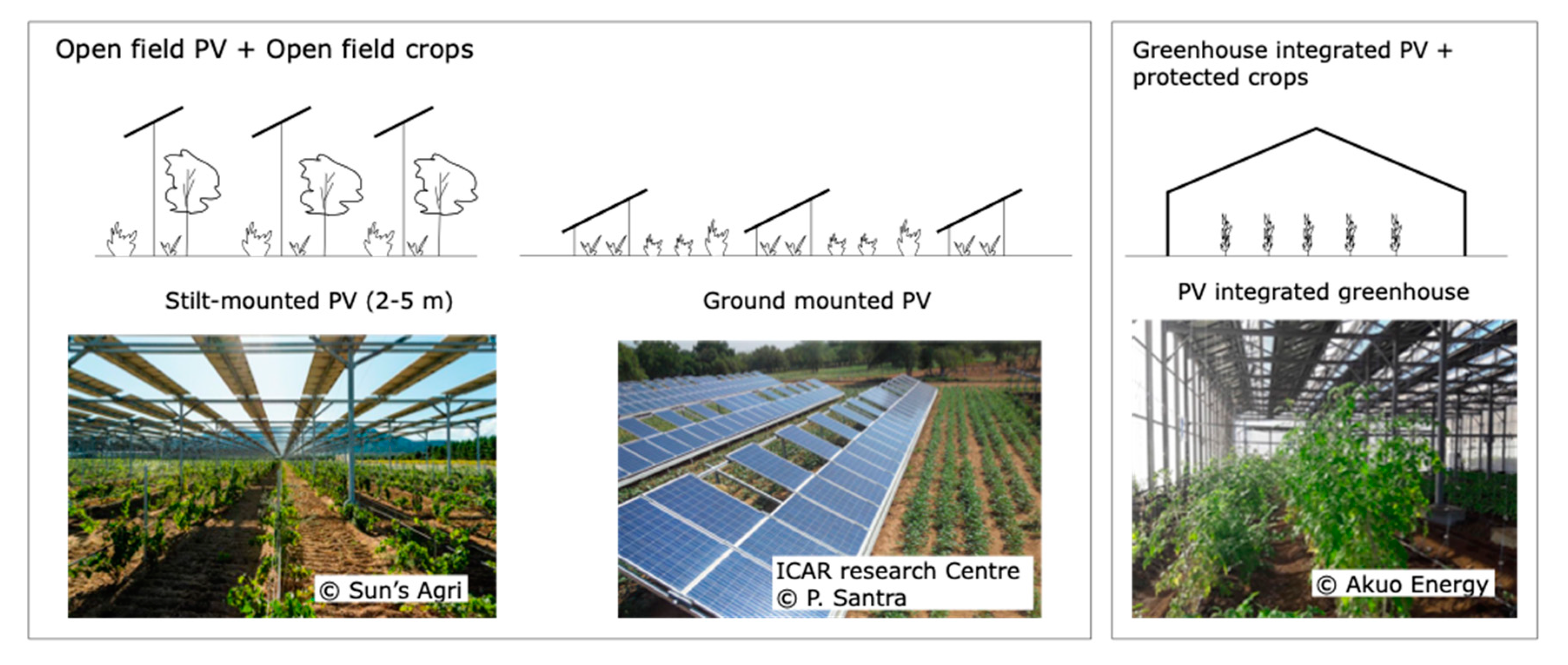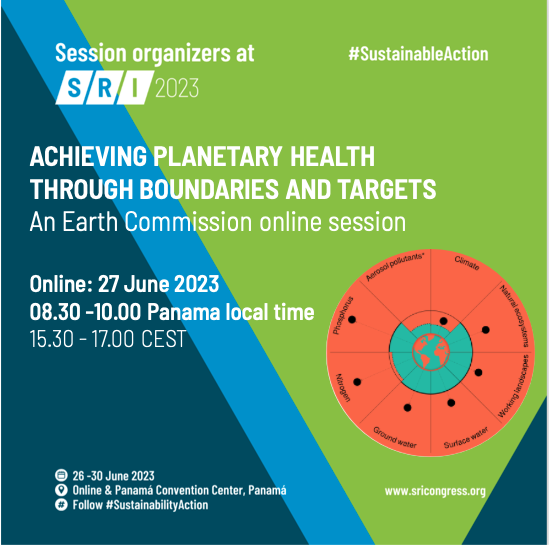- The thematic sessions were held in parallel in the morning and covered: (a) Sustainable investment in support of agri-food; (b) Research and innovation for smarter policies and technologies; (c) Climate resilience of agri-food systems; (d) Regional trade integration
- 30/06 Side event PAFO, with the support of Agricord: AU-EU partnership and the role of farmers' organizations in resilient food systems and sustainable agri-food value chains
Sustainable investment in support of agri-food
systems
- Chair – Ildephonse Musafiri, Minister of State in the Ministry of Agriculture and Animal Resources
- Sheikh Zayed Moderator
- Carla Montesi, Director, Directorate-General for INTPA/EC
- Marco Camagni, Global Technical Lead for rural institutions, International Fund for Agriculture and Development (IFAD)
- Andrea Ghia, Responsible for the EU-Ghana agri-business platform, Eurocham Ghana
- Martin Fregene, Director for Agriculture, AFDB
- Changwe Kumalinga, Chief Financial Officer, Good Nature Agro
- Bongiwe Njobe, Chairperson, Global Forum on Agricultural Research and Innovation (GFAR)
- Mohamed Manssouri, Director, FAO Investment Centre
Research and innovation for smarter policies and technologies
Concept note # 3p.- Chair – Martin Heydon, Minister of State at the Department of Agriculture, Food and the Marine,
- Moderator - Kerstin Rosenow, Head of Unit, Directorate-General for Agriculture & Rural Development, EC
- Irene Annor-Frempong, Leader of the International Consortium of AU-EU FNSSA research at the Forum for Agricultural Research in Africa (FARA), Research and Innovation Consultant and member of the SANAD high-level political dialogue
- Andrés Montero Aparicio, Cabinet of the Prime Minister of Spain
- Godfrey Bahiigwa, African Union, Director for the Department of Agriculture, Rural Development, Blue Economy, and Sustainable Environment (ARBE)
- Muriel Mambrini, Director Research and Program Evaluation, French National Research Institute for Sustainable development (INRAE)
- King-David Amoah, President of The Farmers Organisation Network in Ghana
- Arwyn Jones, EU Soil Observatory, Joint Research Centre, European Commission (JRC/EC)
Climate resilience of agri-food systems
"Enhancing research and development on issues related to agriculture and food security and consolidating and sharing related scientific, technological and other information, knowledge (including local and indigenous knowledge), experience, innovations and best practices"
- Chair – Luis Planas Puchades, Minister of Agriculture, Fisheries and Food, Spain Room - Malaysia Moderator - Ron Hartman, Director for Global Engagement, Partnerships and Resource Mobilization, International Fund for Agricultural Development (IFAD) Speakers
- Martin Frick, Director, World Food Programme
- Ana Maria Loboguerrero Rodriguez, Research Director for Climate Action at the Alliance of Bioversity International and International Center for Tropical Agriculture (CGIAR)
- Christopher Ian Brett, Lead Agribusiness Specialist in the Global Agricultural Practice of the World Bank
- Kaveh Zahedi, Director, Office of Climate Change, Biodiversity and Environment, Food and Agriculture Organization of the United Nations (FAO)
- Kolyang Palebele, President, PanAfrican Farmers Organisation (PAFO)
- Kati Partanen, Member of the Board of Directors, World Farmers Organisation (WFO) and Member of the Board, Central Union of Agricultural Producers and Forest Owners (MTK), Finland
Regional trade integration
- Chair – Minister, African Union
- Moderator - Viwanou Gnassounou, Former Assistant Secretary-General Sustainable Economic Development & Trade; Organisation of African, Caribbean and Pacific States (ACP)
- Magda Kopczynska, Deputy-Director General, Directorate-General for Agriculture and Rural Development, European Commission
- Rob Vos, Director Markets, Trade and Institutions (MTID), International Food Policy Research Institue (Ifpri)
- Alex Assanvo, Executive Secretary, Initiative Cacao Côte d’Ivoire-Ghana (CIGCI)
- Elizabeth Mpofu, Chairperson, Zimbabwe Smallholder Organic Farmers’ Forum (ZIMSOFF)
Plenary session - AU – EU Agriculture Ministerial Conference
- Josefa Sacko, African Union Commissioner for Agriculture, Rural Development, Blue Economy and Sustainable Environment AU
- Janusz Wojciechowski, European Commissioner for Agriculture EC
- Qu Dongyu, Director General, FAO
- Mohamed El-Quseir, Minister of Agriculture, Egypt
- Francesco Lollobrigida, Minister of Agriculture, Food Sovereignty and Forestry, Italy
- Ousmane Badiane, Executive Chairperson, Akademiya 2063
- Maness Nkhata, President of Farmers Union of Malawi
- Agnes Kalibata, President AGRA, UN Secretary General’s Special Envoy 2021 Food System’s Summit
- Alvaro Lario, President, IFAD
- Investment Ildephonse Musafiri, Minister of State in the Ministry of Agriculture and Animal Resources, Rwanda
- Research and innovation Martin Heydon, Minister of State at the Department of Agriculture, Food and the Marine, Ireland
- Climate resilience Luis Planas Puchades, Minister of Agriculture, Fisheries and Food, Spain
- Regional Trade Minister, African Union
Side Events
Side event 1: What AU-EU Partnership to Unlock the Potential of African Agriculture and Develop Sustainable and Resilient Food Systems?
Concept noteSide Event 2: An African perspective on GI: how the Continental Strategy for Geographical Indications in Africa contributes to resilience and sustainability of food systems
Concept note- Moderation: Magdalena Kopczynska, DGAGRI.
- Minister of Agriculture Senegal and/or Ethiopia,
- Minister of Agriculture of Ghana and/or South Africa,
- Minister of Agriculture of Chad and/or of Agriculture of Mauritania,
- OAPI, ARIPO,
- Godfrey Bahiigwaa, DARBE Director.
Side Event 3: Responsible investments in food value chains for resilient food systems
Concept noteThis side-event presented several examples of successful approaches on the ground on responsible investments in agri food system. It took into account that challenges in food systems are often closely related to education, gender equality and infrastructure, and therefore require multi-sectoral and systemic solutions to ensure resilience.
- Moderator Prof. Jennie Barron, Swedish University
- Peter Kullgren Minister of Rural Affairs, Sweden
- H.E. Bryan Acheampong Minister of Food and Agriculture, Ghana
- Martin Fregene African Development Bank
- Banke Olukanmi, Babban Gona, Nigeria Efficient mobilisation of private capital to support smallholder farmers across rural Nigeria
- Yaw Agyeman Atwereboanda Entrepreneur/Farmer, Ghana, The producers perspective from sustainable investments in Ghana
- Hon Murray Watt, Minister for Agriculture, Fisheries and Forestry, Australia.
- Lauren Phillips, FAO The Status of Women in Agrifood Systems
- Tora Olsson, Guarantees as a tool to mobilise responsible investments SIDA
- Kostas Karantininis - Swedish University of Agricultural Sciences, SLU, SASi-SPI: Sustainable Agri-Food Systems Inteligence - Science Policy Interface EU-FAO-AGRINATURA Partnership Initiative
- Stephen Onakuse, Agrinatura President
Side Event 4: Science for Policy - how science can support policymaking The example of the Pan African Network for Economic Analysis of Policies (PANAP)
Concept note- S. Saastomainen, Deputy Director-General, EC-JRC
- A. Agumya, Executive Director, FARA
- W. Mene, Secretary-General, AfCFTA Secretariat
- R. Ngugi, Executive Director, Kenya Institute for Public Policy Research and Analysis (KIPPRA), Kenya
- A. Garba Modibo, Coordonnateur, Cellule d’Analyse des Politiques et d’évaluation de l’action gouvernementale (CAPEG) (Niger)
- A.P. Arnaud Assanvo, Secrétaire Exécutif, Côte d’Ivoire – Ghana Cocoa Initiative
- K. Rosenow, Head of Unit Research and Innovation, EC-DG.AGRI
- G. Bahiigwa, Director Agriculture and Rural Development, AUC-DARBE
- C. Montesi, Director Green Deal, Digital Agenda, EC-DG.INTPA
Side Event 5: AU - EU partnership and the role of FOs in Resilient food systems and sustainable agri value chains
- Moderated by Mr. Ishmael Sunga
- Hon. Dr. Ildephonse Musafiri, Minister of Agriculture and Animal Resources, Rwanda
- Hulmi Aulikki Permanent Secretary – Finland
- Carla Montessi - Director DG INTPA/EC - The role of Farmers Organisations in the transformational agenda for climate change, environment, sustainable energy, agri-food systems and digitalisation action
- Marco Camagni, Lead Global Technical Specialist in Producers Organizations and Rural Development, IFAD - The role of Farmers Organisations in IFAD’s rural transformation strategy
- Ms Manes Nkhata, President Malawi National Farmers Organisation, PAFO member - Showcasing Success Stories about economic services, advocacy, and institutional development of the membership-based farmers organisations
- Mr Enrico Parisi, Coldiretti Young Farmer, WFO member
CONCORD (2023) CONCORD Recommendations for Food and Agriculture in the AU-EU Partnership # 6 p.
- respect democratic policy decision making rooted in a human rights framework.
- support the agroecological transition.
- promote food sovereignty, family farming, territorial food systems and healthy diets.
- strengthen eu support for sustainable food systems and redesign eu investment policies
- respect the principle of coherence for sustainable development (PCSD)

